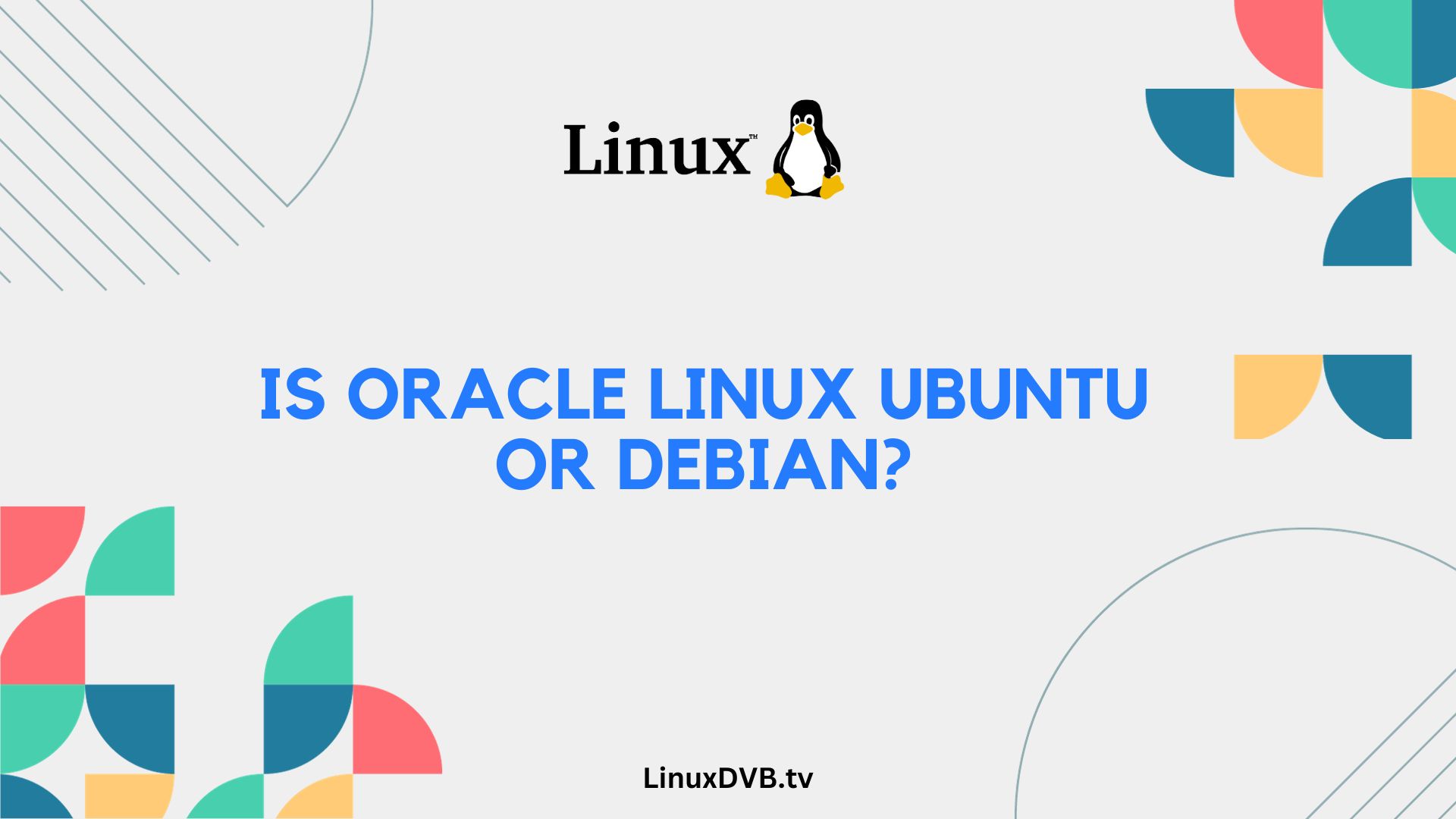Introduction
In the world of Linux operating systems, Oracle Linux, Ubuntu, and Debian are well-known names. Each of these distributions has its own strengths and characteristics that cater to different user needs. Whether you’re a seasoned Linux user or a newcomer looking to make an informed choice, this article will help you understand the key differences and similarities between Oracle Linux, Ubuntu, and Debian.
Table of Contents
Is Oracle Linux Ubuntu or Debian?
Let’s dive into the details and explore the intricacies of Oracle Linux, Ubuntu, and Debian:
Oracle Linux
Oracle Linux, often referred to as “Unbreakable Linux,” is a distribution built and maintained by Oracle Corporation. It is based on the freely available source code of Red Hat Enterprise Linux (RHEL) but comes with Oracle-specific enhancements and support.
Performance and Scalability: Oracle Linux is renowned for its robust performance and scalability, making it an ideal choice for enterprises with demanding workloads.
Security: Oracle Linux offers advanced security features, including mandatory access control (SELinux), which helps protect your system from potential threats.
Support: Oracle provides exceptional support for Oracle Linux, making it a top choice for businesses that require reliable assistance.
Compatibility: Due to its RHEL compatibility, Oracle Linux seamlessly runs RHEL applications, ensuring a wide range of software compatibility.
Ubuntu
Ubuntu, developed by Canonical Ltd., is one of the most popular and user-friendly Linux distributions available. It’s known for its ease of use and extensive community support.
User-Friendly Interface: Ubuntu boasts a user-friendly interface that caters to both beginners and experienced users.
Software Center: The Ubuntu Software Center simplifies software installation, allowing users to find and install applications with ease.
Community Support: Ubuntu has a vast and active user community, making it easy to find help and resources online.
Regular Updates: Ubuntu provides regular updates and releases, ensuring your system stays up-to-date with the latest features and security patches.
Debian
Debian, often called the “universal operating system,” is a community-driven distribution known for its stability and commitment to free and open-source software principles.
Stability: Debian is renowned for its stability, making it a great choice for servers and critical systems.
Huge Software Repository: Debian’s extensive software repository contains a wide range of applications, giving users plenty of choices.
Open Source Philosophy: Debian strictly adheres to open-source principles, ensuring that all software included in the distribution is free and open.
Long-Term Support: Debian offers long-term support (LTS) for its stable releases, providing a reliable foundation for your projects.
Frequently Asked Questions
Which Linux distribution is best for beginners?
Ubuntu is often recommended for beginners due to its user-friendly interface and extensive community support.
Is Oracle Linux free to use?
Oracle Linux is available in both free and paid versions. Users can choose between Oracle Linux and Oracle Linux Premier Support, depending on their needs.
Can I run Debian on older hardware?
Yes, Debian’s lightweight versions are suitable for older hardware, ensuring that you can breathe new life into aging computers.
Which distribution is better for server environments?
Both Oracle Linux and Debian are excellent choices for server environments, with Oracle Linux offering additional enterprise support.
Can I install Ubuntu software on Debian?
In most cases, you can install Ubuntu software on Debian, but it’s essential to ensure compatibility and resolve any dependencies.
Does Oracle Linux offer virtualization support?
Yes, Oracle Linux includes built-in virtualization support through Oracle VM VirtualBox, making it a suitable choice for virtualized environments.
Is Oracle Linux Ubuntu or Debian?
Oracle Linux is neither Ubuntu nor Debian; it is a separate Linux distribution developed and maintained by Oracle Corporation.Is Oracle Linux different from Ubuntu?
Yes, Oracle Linux is different from Ubuntu. They are distinct Linux distributions with different origins, features, and support options.Which is better Oracle Linux or Ubuntu?
The choice between Oracle Linux and Ubuntu depends on your specific needs and requirements. Each has its own strengths and weaknesses, so one may be better suited for certain use cases than the other.Conclusion
In the grand debate of “Is Oracle Linux Ubuntu or Debian?” there’s no one-size-fits-all answer. Each of these Linux distributions brings its own strengths and caters to different user preferences and requirements. Whether you prioritize performance, ease of use, or strict adherence to open-source principles, you can find a Linux distribution that suits your needs among Oracle Linux, Ubuntu, and Debian.

